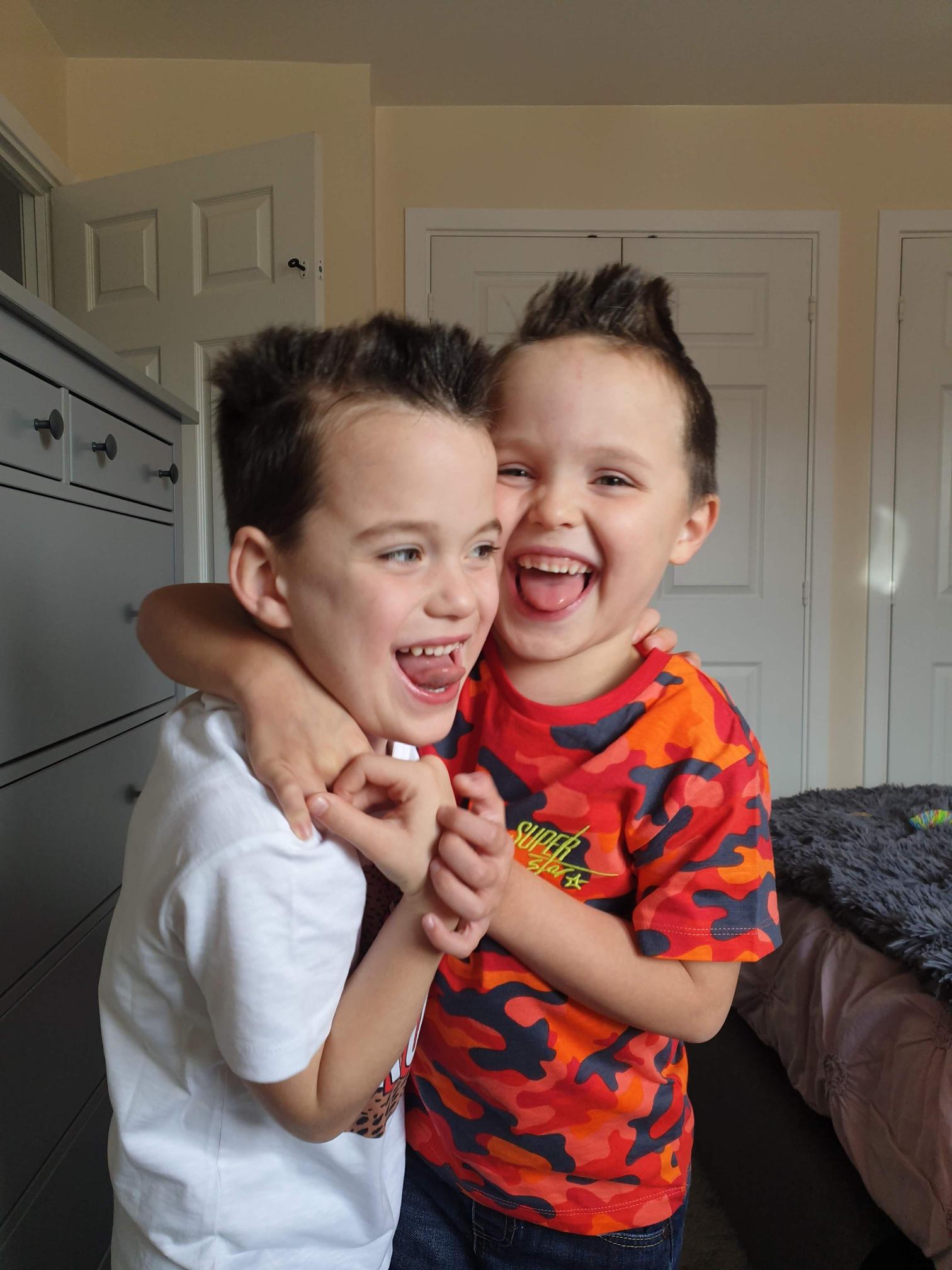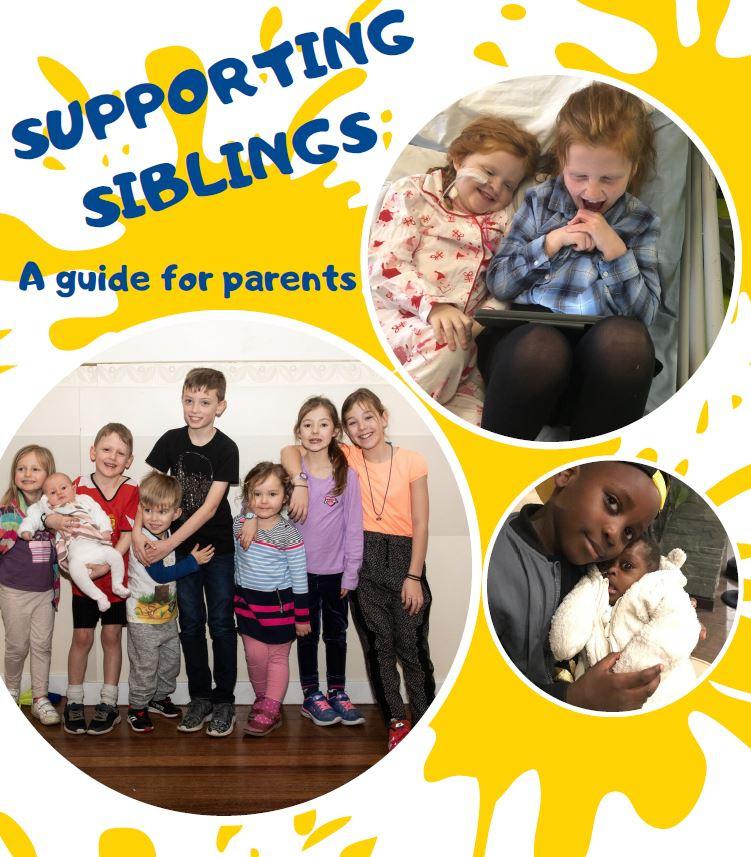
8 minute read
Liver disease and your family
from Liver Life 2021
by CLDFOnline
Every family where a child has liver disease knows about the difficulties which can occur when one child is in hospital and routines are disrupted. But do these disruptions have any lasting effect on sibling relationships? We spoke to some families for their views.
Leonna whose 12 year old daughter, Trinity, had a transplant when she was just six weeks old, feels that the impact of her liver condition on the family is escalating.
Advertisement
“My younger daughter Harriet, who is ten, knows that Trinity has to go to hospital lots, needs meds, and needs more care, but she just sees it that mummy loves Trinity more, ” says Leonna. “She’s even said ‘I wish I was poorly so I can get treats from the hospital’ , which is really sad. I find it exhausting and I’m not sure how to deal with it. ”
Harriet admits that having a sibling with health problems can be difficult: “I sometimes feel like Trinity gets more attention and I feel left out, like sometimes I feel invisible, ” she says. Although I feel this way, I love Trinity so much, it’s just a bit hard to show it, she has to go through so much and I want her to know that I'm here for her no matter what. ”
Trinity & Harriet
Sophie & Megan
In other families, the impact is less obvious. Louise’s 11 year old daughter, Sophie, has biliary atresia and had a transplant when she was three. The family have always been very open with Sophie and her twin sister, Megan, about Sophie’s liver condition.

“The girls have always been close and although Megan would say she doesn’t treat Sophie any differently – and Sophie would wholeheartedly agree - there are subtle things I notice, ” says Louise. “For example, if Sophie has a hospital appointment which causes Megan some interruption or inconvenience, Megan never complains. When they were together at primary school, Megan would report back on any incident such as Sophie getting hit in the tummy with a football, whereas Sophie wouldn’t even mention it. And when they returned to school after the first lockdown, Megan was worried about catching Covid, not for herself but because she didn’t want to pass it onto Sophie.
“Megan is a caring person, sensitive to the needs of others and because this situation is all either of them have ever known, we don’t know how much Sophie’s liver condition has to do with that. ”
One mum who is certain that her son’s liver condition has had an impact on his twin is Sam. Her five year old son, Reid, has biliary atresia and while he is currently doing well and takes all his appointments in his stride, his brother, Eldon, has had a number of issues which prompted his parents and the school to consult an educational psychologist.
“We thought he was showing signs of autism, but as we await a formal diagnosis, the psychologist told us he also shows a lot of attachment disorder behaviour, ” explains Sam.

“This would most likely relate to being separated from his twin when Reid was admitted to hospital at nine weeks old. Up until then, they had always slept side by side and been tandem breast fed. The psychologist also explained that it is entirely possible it didn't have the same impact on Reid because he was too poorly to be aware of anything other than how his immediate needs were being met and he had us around for the reassurance when he needed it.
Eldon & Reid
“Even now, Eldon will always look for Reid. He doesn't necessarily need to be playing with him, but he gets very unsettled if he doesn't know where he is. One morning Reid woke up very early so my husband, Alex, took him out. When Eldon woke up, he went straight to Reid’s room, saw he wasn't there and came running to me demanding we go to the hospital to see Reid straight away! It took me a few minutes to calm him down and explain that Reid was out with Daddy and fine.
“The attachment affects his behaviour too as it causes him to push us all away, which I have been told is a coping mechanism. It’s like he believes we are going to leave him or that we don't love him, so he does things to make us prove him right.
“This is why we have started art and animal therapy for both boys and Eldon, in particular, is loving it so much. Something else that has really helped us is "therapeutic parenting" . We joined the National Association of Therapeutic Parenting for £5 a month. And through them I've had so much material and webinars on parenting children with attachment difficulties and early trauma.
“This has all been a massive learning curve and we have had a lot of parental guilt wondering if we could have handled things differently to have avoided this, but I think ultimately we have accepted we did the best we could with what we had and knew at the time and blaming ourselves won't help any of us. ”
CLDF’s Children’s and Families Officer, Kate Conroy says: “Siblings are a really important part of the support we offer. Often, families who come to us for support initially contact us about their child with liver disease and then, as we talk, it becomes clear that the sibling of the unwell child is really struggling in their own way. Parental guilt is a common issue, with parents feeling that they have to prioritise their poorly child which means that their sibling gets a lot less time with them. Parents also struggle with the sudden health crises where they have to leave home to be in hospital for an unexpectedly long time with the unwell child and the sibling is left at home with little warning.
"We get asked advice to help siblings who develop anxiety and become over-
protective and work with families to help them find a way through these difficulties. The tips given by the psychologists (p30) are great and we use them every week. And once we can get back to face to face events again, they are a great way for siblings to get together and know that they are not alone in having a brother or sister with a liver disease.
"It’s also really important that when your child with liver disease is well, try and spend some time as a whole family having some fun and also quality 121 time with their sibling just to check in with them and be the two of you. Just 10 mins a day can make a huge difference.
"My main message is that for all parents of more than one child, at any time in their lives one child will likely need more of your support and time than the other, and you will feel split down the middle and guilty about one child not getting more of you. This feeling is just magnified when one child has a chronic health condition. Be kind to yourself, you are a parent not a superhuman! You can only do what you can do, and if you follow some of this advice you will help siblings feel heard, understood and safe while you care for your other child.
Dr Helen Lowther and Dr Emily Fraser, paediatric psychologists at Glasgow’s Royal Hospital, have some tips for parents on how to minimise family stress:
Having a sibling of an unwell child to keep in mind can be very difficult as a parent. Your child with a liver condition, their treatment and trips to hospital will naturally take up a lot of time and emotional energy, and it can be a challenge balancing this out for the sibling(s) at home. We’re sure there are lots of things that you already do that help. However, we thought it might be helpful to share a few ideas of things that could help you on your parenting journey. As your children grow, continue taking an open, honest approach about the need to be away in hospital at times, if appropriate. Preparing children does not raise anxiety in the long term, however sudden changes to the family system can affect anxiety if they are not prepared for this. For younger children, books and stories about hospital can be helpful as well.
Educate the sibling

CLDF’s guide for supporting siblings of a child with liver disease contains plenty of information and advice for parents, as well as top tips aimed at siblings themselves to help them cope.
To request a copy email families@childliverdisease.org.
PSYCHOLOGISTS TOP TIPS
( )s about their brother or sister’s health needs. Having more information can decrease anxiety.
Have a plan drawn up with your children and other supportive adults to try to make the situation predictable if your child needs to go into hospital (Who will look after them? Who will do the school runs? Where will they stay?)
When and where possible, spend one to one time with all of your children. This doesn’t have to be doing things that take a long time, a 10-15 minute activity can be beneficial – it can be an idea to write down activities you would like to do together and put these in a jar to pick from.
Try to make a predictable routine when you are staying at hospital for your child(ren) at home. For example, can you video call at the same time each day, or get involved in your usual home routines like a bedtime story from a distance?
Is there a special item of yours they could keep if you are having to be away from them?
Once you have been through a difficult time (for example an inpatient stay or a change in their sibling(s) health), be sure to praise your other child(ren) for how you saw them coping during that time. Have open conversations about what helped and what did not help, and talk about any difficult feelings.
Talk to your children if you feel that they are worrying a lot about keeping their sibling who is not well safe. Encourage them to do activities they enjoy and let them know that while it’s great that they look out for their sibling, there are some worries that it’s an adult's job to hold.










